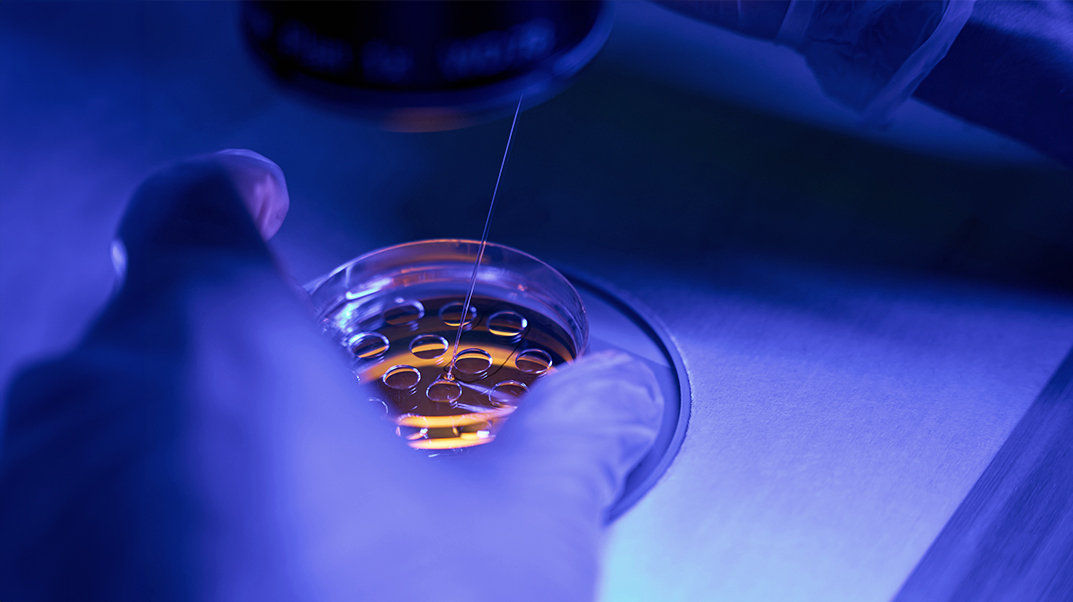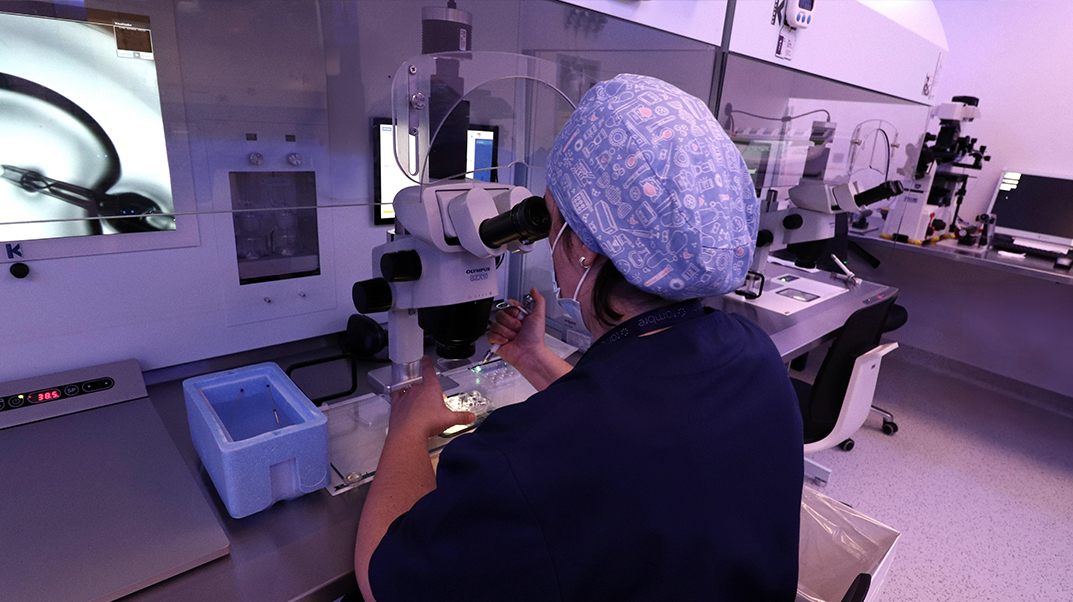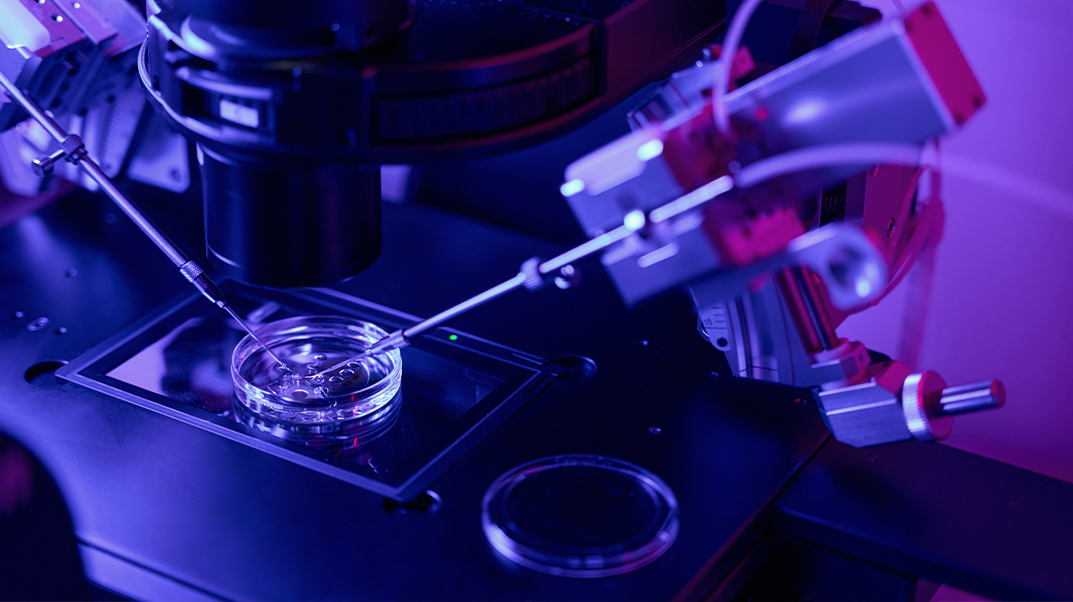blog tambre
Why choose Spain for your Preimplantation Genetic Diagnosis (PGD)?

Table of contents
Since its first application in humans in 1990, Preimplantation Genetic Diagnosis (PGD) has been developed as an effective tool to select embryos based on their genetic makeup and to discard those with alterations related to certain pathologies.
Despite its benefits, however, PGD, as well as assisted reproduction treatments, are not applied uniformly across all European countries. In many cases, legislation has not yet adapted to societal needs. Therefore, certain countries, such as Spain, have become the most suitable destinations for those seeking PGD and, in general, assisted reproduction treatments. This is not only because Spain offers a favourable legal environment but also due to its high standards of medical care, extensive experience, and high success rates.
What is Preimplantation Genetic Diagnosis (PGD)?
Preimplantation Genetic Diagnosis (PGD), or Preimplantation Genetic Testing (PGT), is a technique used in assisted reproduction to detect genetic abnormalities in embryos before implantation in the mother’s uterus. Hence, PGD is a complementary technique that helps determine the best embryo to transfer in an in vitro fertilisation (IVF) treatment.
At an early stage, cells are removed from the embryo and analysed genetically to identify possible genetic or chromosomal disorders. These cells are taken from the trophectoderm, which will become the placenta. This technique offers couples who are carriers of severe genetic diseases the opportunity to have a healthy child without passing these diseases on.
Tambre performs 3 types of pre-implantation genetic tests:
Tambre performs three types of pre-implantation genetic tests:
- Preimplantation Genetic Testing for Aneuploidies (PGT-A): Detects chromosomal defects or additions in embryos. For example, in Down’s Syndrome, the test detects if there are three chromosomes (trisomy of the 21st pair) instead of two.
- Preimplantation Genetic Testing for Monogenic Diseases (PGT-M): Helps detect alterations in the DNA sequence of a gene to screen for genetic diseases. This type of test is frequently used when there is a history of a previous sick child or when both parents are known carriers of the same disease, posing a risk of having affected children.
- Preimplantation Genetic Testing for Structural Rearrangements (PGT-SR): Detects abnormalities in the structure of chromosomes, which could lead to disease.
PGD Legislation in Spain
Spanish law on in vitro fertilisation is among the most comprehensive and advanced pieces of legislation on assisted reproduction within the European framework. Specifically, Law 14/2006 on Assisted Human Reproduction Techniques outlines the guidelines for this field and protects access to motherhood for all groups in society.
This 2006 Law establishes a clear legal framework governing the practice of Preimplantation Genetic Diagnosis (PGD) in Spain, ensuring the protection of patients’ rights and adherence to quality standards in assisted reproduction centres, such as Clinica Tambre, where we rigorously apply the law.

Dr Estefanía Moreno, fertility specialist at Clinica Tambre, with a patient.
In Spain, Preimplantation Genetic Diagnosis (PGD) or Preimplantation Genetic Testing (PGT) is authorised to prevent diseases in the future baby, but not for personal purposes that could be considered discriminatory, such as selecting the sex of the embryo. PGD is also authorized for detecting other alterations that may compromise the viability of the embryo and result in implantation failure.
Considering these conditions, PGD is permitted in Spain for a wide range of cases:
- Severe Genetic Diseases: PGD can be used to detect and prevent the transmission of serious genetic diseases, such as cystic fibrosis, Duchenne muscular dystrophy, and Huntington’s disease, among others.
- Chromosomal Abnormalities: PGD can identify chromosomal abnormalities, such as trisomy 21 (Down’s syndrome), trisomy 18 (Edwards’ syndrome), and trisomy 13 (Patau’s syndrome), among others.
- Repeated Miscarriages: In cases of recurrent miscarriages of unknown cause, PGD can analyse embryos and rule out genetic abnormalities as a possible cause.
- Implantation Failures: PGD can select healthy embryos and increase the chances of success in assisted reproduction treatments by avoiding implantation failures.
Restrictions on Preimplantation Genetic Testing in European Countries
Outside Spain, the legal restrictions on PGT are much stricter. Some countries, such as Ireland, Switzerland, Italy, and Austria, have a total ban on this technique.
Others, such as Germany, limit its use to specific cases or impose strict regulations that make access difficult. In Germany, preimplantation genetic testing is only allowed in cases where there is a proven risk of a serious hereditary disease. Additionally, it must be approved by an ethics commission and can only be performed in clinics with a specific licence. Embryo freezing and egg donation are also prohibited in Germany, which is an obstacle to achieving parenthood.
In France, the use of PGT is also restricted, as a doctor must certify the high likelihood of having a child with an incurable genetic disease. Furthermore, tests can only be performed for anomalies that have previously been identified in one of the parents.
Why choose Tambre for Preimplantation Genetic Diagnosis?
There are many advantages to carrying out PGT in Spain. In addition to the solid legal framework, at Tambre we are specialists in Advanced Reproductive Medicine. Moreover, we have over 40 years’ experience in assisted reproduction and have first-class medical facilities that enable us to guarantee optimum results and comprehensive care, as demonstrated by our 81% success rate in Preimplantation Genetic Testing.
Another important aspect, apart from advanced technology, is that at Tambre we take special care of patients from abroad. For this reason, we have fertility experts who speak different languages, so that our patients can communicate with their medical team in their native tongue, making the process more comfortable and less stressful for those who travel to Spain in search of a healthy and happy baby.
Request your first consultation at Tambre now, and we will provide you with more information about Preimplantation Genetic Diagnosis or Testing, as well as other assisted reproduction treatments that we carry out at our clinic. These treatments are completely adapted to our patients from abroad.




